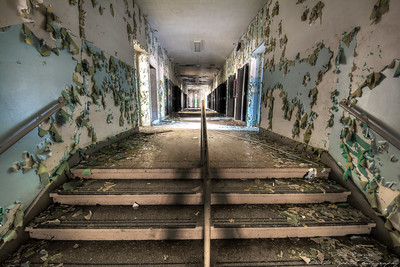During the Spring Trustees retreat, Bill Johnson fielded a speculative question that was too good to pass up. You can watch the video here. The question is apropos of nothing in particular, since it doesn’t really relate to the discussion that either precedes or follows it.
Trustee William Milliken Jr.Bill, this is a speculative question. Um, there are reports around the country about community colleges and four-year institutions in great financial disarray, and closures of colleges. If we were to hypothesize that 28% enrollment decline that you showed earlier were to force the closure of some Michigan community colleges – we’ve got 28 of them around the state – would that inure to our benefit in some backhanded way because there were fewer schools, and more people would turn to Washtenaw Community College for an opportunity?
Bill Johnson: I think that’s right, Trustee Milliken is that, you know, the strength of our distance learning programs – kind of assuming that whichever of those schools might be struggling and students might turn to other options, and if they’re not driving distance away, our distance learning programs are so strong and rigorous. The quality and just the number of programs that we have and just the general affordability that I think will be a strong option for those students.
I think the takeaway here is that a speculative question at the Trustee Retreat sure is interesting, isn’t it? (What is it with Republicans and wild-ass speculation, anyway?)
Wow!
Facts matter. Speculative questions don’t.
I feel some facts coming on. First, there are no public Michigan community colleges under such immense financial pressure that they’re considering closure. I’m just going to leave that right there.
On second thought, I’m going to say that it is highly irresponsible for a Trustee at one community college to speculate about the financial health of other Michigan community colleges. It’s also unseemly to suggest that Washtenaw Community College would be in a great position to pick the carcasses of other community colleges.
Second, like many other community colleges, Michigan’s two-year institutions have been weakened by a long positive economic cycle, then crushed by the pandemic. And yes, enrollment is down. However, enrollment at Michigan’s community colleges peaked during the Great Recession. So, maybe comparing community college enrollment after a 10-year recessionless run to its historical high watermark doesn’t paint an accurate picture of community college enrollment trends.
Third, all that money that WCC got from the Feds? All other Michigan community colleges got that same money, too.
Fourth, WCC – which just scrambled around to cut $5M from its budget – is in no position to throw shade at other unnamed Michigan community colleges regarding their relative measures of “financial disarray.”
Finally, closing a community college isn’t as easy as one might think. The only experience Michigan has with closing a community college is Highland Park Community College. HPCC closed during the Engler administration. HPCC failed to file a couple of mandatory audit reports with the state. It also had a deficit of $1.89 million dollars. With inflation, that $1.9M deficit would be about $3M today. I’ll remind you that WCC’s deficit at the beginning of the year was $5M.
Closing a community college is not a subject for speculation
I don’t want to debate the merits of the Highland Park CC closure. I will say, however, that there were few bones left to pick when HPCC ceased operations. Other community colleges in the area reached out to the HPCC students and got very little response. Most of HPCC’s students – even those who were just weeks away from graduation – declined to enroll elsewhere.
That is actual experience with what happens when you close a community college. The students simply do not enroll elsewhere. Their educational experience is permanently broken. To suggest that WCC will somehow become the beneficiary of other community colleges’ hypothetical financial misfortunes is ludicrous.
Why would a Trustee start speculating about the financial health of other community colleges? Or their closure status, or the impact of such a closure? Especially when 180,000 Michiganders are trying to enroll in the state’s free community college programs.
The reason for this ridiculous theater remains unanswered.
Photo Credit: David Barnas, via Flickr




















